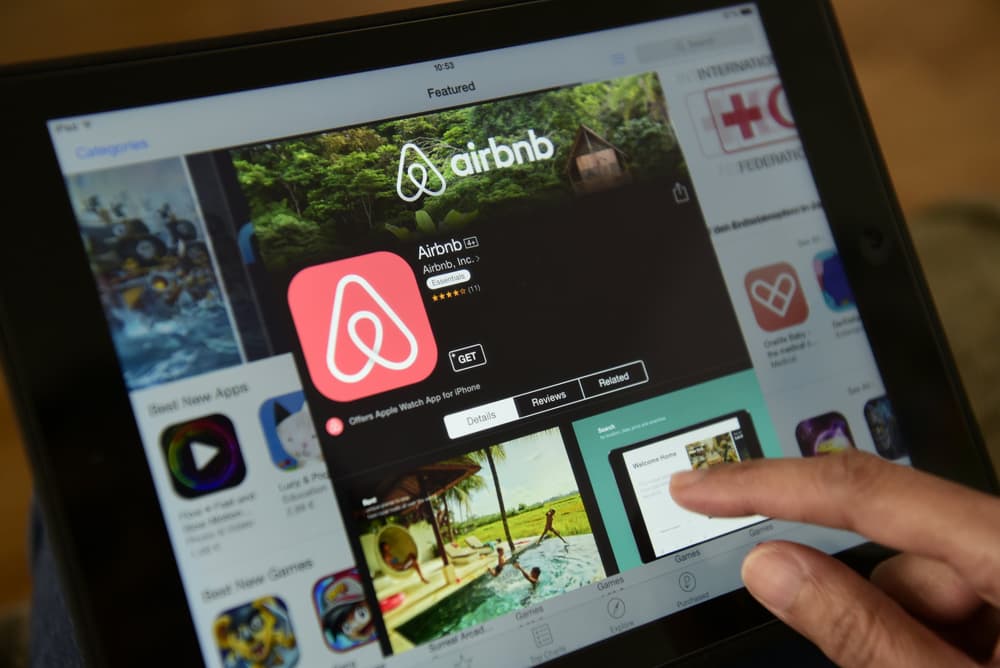Advertisement
What To Know About The Mass. Bill To Regulate Airbnb
Resume
Update 12/28/18: Gov. Charlie Baker has signed legislation to tax and regulate short-term home rentals like Airbnb, according to a statement from the Massachusetts Lodging Association to the State House News Service.
"By adopting a more level playing field between short-term rentals and traditional lodgers, lawmakers made great strides toward a more fair and sensible system," said Association CEO Paul Sacco in the statement.
Original post:
Rentals done through websites like Airbnb and HomeAway could soon be regulated across the state.
A bill on short-term housing rentals got new life Thursday as Massachusetts House and Senate leaders reached a compromise just before the two-year legislative session comes to a close. The new bill is now on the governor's desk.
Here's what to know about the legislation:
What's in the bill?
The new bill would apply a 5.7 percent tax to short-term housing rentals — the same lodging tax currently applied to hotels and motels.
The bill, however, does gives cities and towns the ability to levy additional taxes or other regulations, including banning short-term rentals altogether.
The legislation would also create a statewide registry of short-term housing rentals to help track where they are, and it would require operators to have insurance for their short-term rentals.
"The bill complies with a basic framework of leveling the playing field between short-term rentals and traditional lodging establishments, preserving local control and protecting consumers that are engaged in the emerging short-term rental market, said state Sen. Michael Rodrigues, who worked on the bill.
How does this bill differ from past attempts to regulate short-term rentals?
The Legislature passed a similar bill back in July, but Gov. Charlie Baker sent it back with some concerns. Baker wanted to limit the amount of information that would be made public in the registry. So, this new bill does that by only requiring street names instead of full addresses (with street numbers).
Baker was also concerned about taxing people who only rent out their homes for a few days per year. So under the new bill, people who rent out their units for 14 days or less wouldn't be subject to the lodging tax.
The new bill also postpones an extra financing fee for the Boston Convention and Exhibition Center for about 10 years.
What are short-term rental companies saying about the bill?
They're not happy about it at all, and are urging the governor to veto it.
Philip Minardi of Expedia Group — which owns HomeAway, VRBO and other home-share websites — said the bill isn't a compromise at all.
"It would be easier to convince me, and I think a lot of folks across Massachusetts, that a banana is an orange than to make the argument that this bill is a fair compromise," Minardi said in a phone interview.
He said the bill jeopardizes people's privacy with the public registry and puts unnecessary requirements on people who rent out their homes. He also takes issue with the legislators "passing a proposal at the 11th hour."
Airbnb raised similar concerns, and in a statement, the company urged lawmakers to "take the time necessary" to achieve "common sense home-sharing policy."
Do communities like this state legislation?
Many communities where residents have been calling for regulations on short-term rentals are thrilled about the new bill. Karen Chen, the executive director of the Chinese Progressive Association, said people are buying up housing in Chinatown just to rent it out on Airbnb, and that's displacing long-time residents in the neighborhood.
"If all we have is just Airbnb, you know Boston will lose its heart and soul," Chen said. "We want to have neighborhoods."
According to Chen, the number of Airbnb rentals in Chinatown doubled to about 200 over just a couple of months last summer.
Doesn't Boston already have an ordinance to regulate short-term rentals?
Yes. It's slated to take effect Jan. 1. Boston's ordinance requires short-term rentals to register with the city and bans people from doing short-term rentals in units where they don't live (a.k.a. investor units).
The state bill wouldn't change what Boston is doing.
But it's worth noting that Airbnb filed a lawsuit against the city of Boston over its ordinance. So, some provisions are being held up in court — such as the requirement that the company share data with the city, and fines against companies for illegal listings.
The other parts of the Boston ordinance will move forward in Jan. 1, including potential fines on hosts who don't comply, according to City Councilor Michelle Wu, who has led local regulation efforts. Wu said the state bill bolsters what the city is trying to do.
"Because the state law proposed now, the new compromise version, would include requirements for a state-wide registration and database, this would really support the city's authority to require that kind of data-sharing at the municipal level," Wu said in a phone interview.
Airbnb declined to comment on the lawsuit.
Any indication of whether the governor will sign the bill into law?
Baker is reviewing the new bill, according to the governor's office. He has 10 days (from when it was passed) to decide whether to sign it. That gives him a deadline of Dec. 30.
This segment aired on December 21, 2018.
